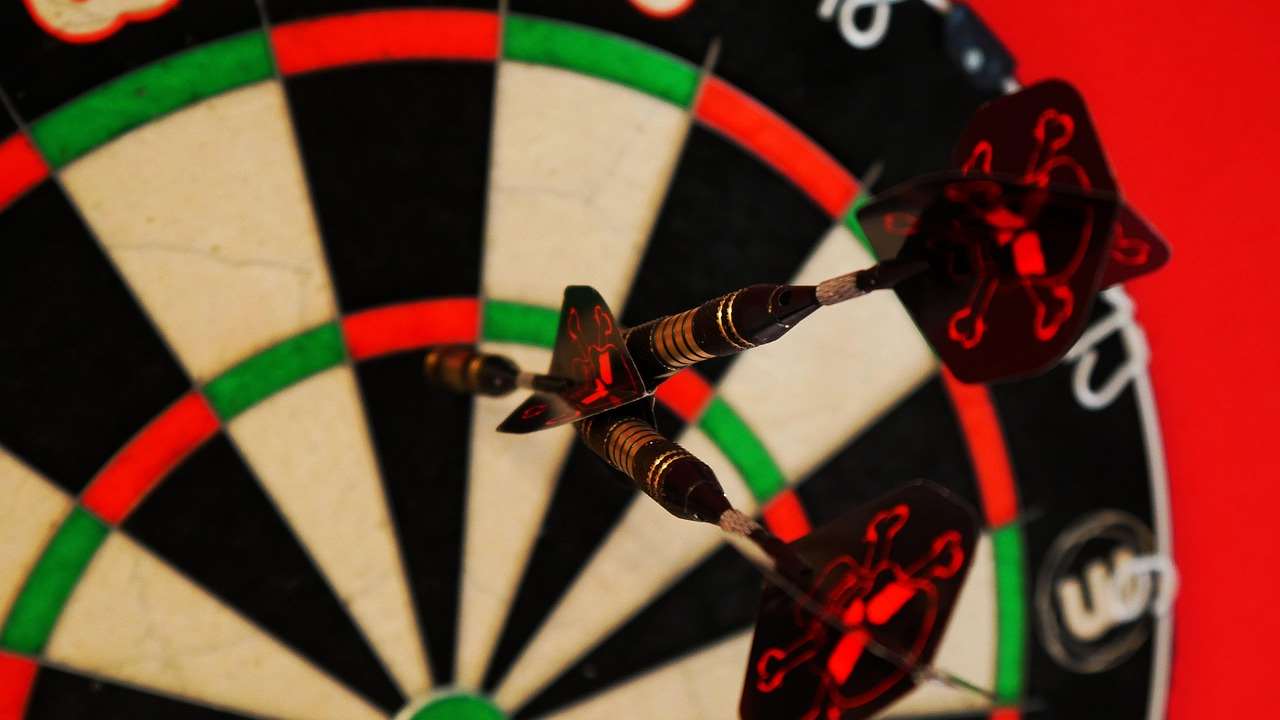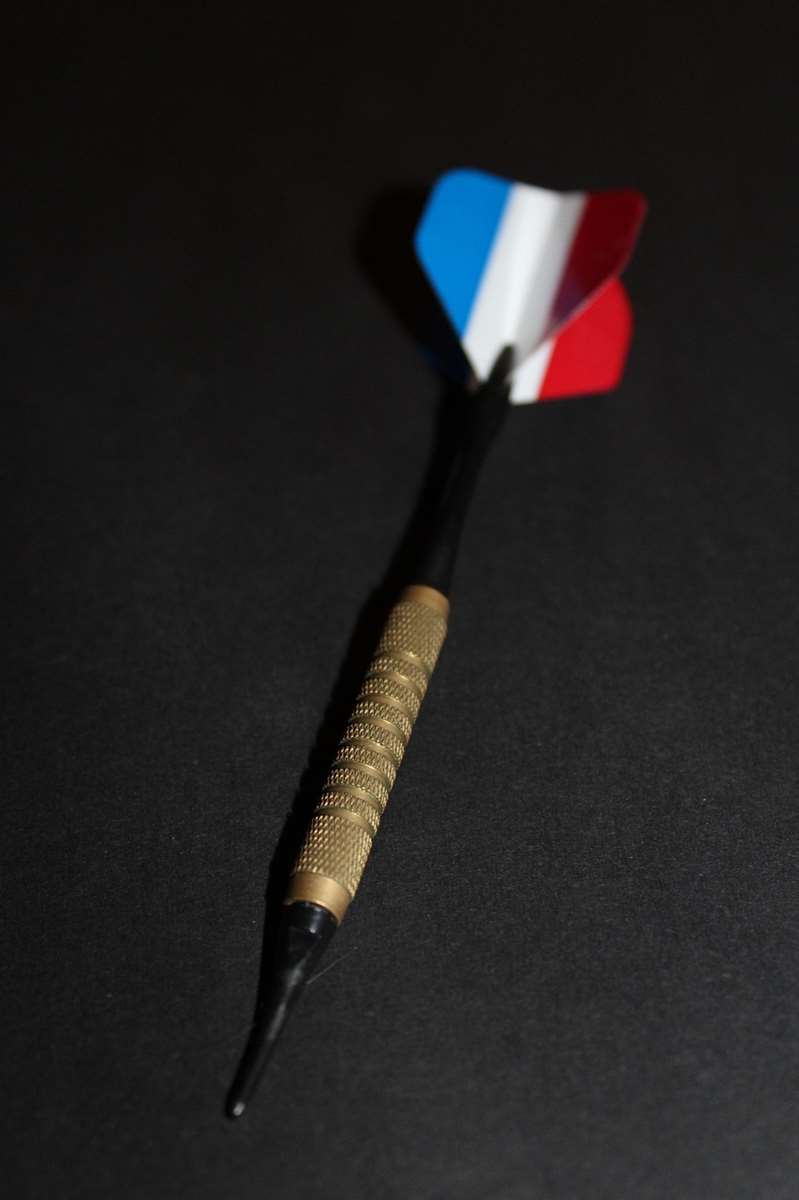Improving your reaction time for match play is crucial for success in darts. This article will delve into strategies to enhance your speed and accuracy, ultimately improving your overall game. We’ll cover training techniques, mental preparation, and physical conditioning to optimize your reaction time for match play.
⚠️ Still Using Pen & Paper (or a Chalkboard)?! ⚠️
Step into the future! The Dart Counter App handles all the scoring, suggests checkouts, and tracks your stats automatically. It's easier than you think!
Try the Smart Dart Counter App FREE!Ready for an upgrade? Click above!
The foundation of a strong game lies in understanding the factors that influence reaction time. This means understanding not just the physical aspects, but the mental game too. For example, a player experiencing high levels of stress might see their reaction time significantly increase, leading to missed throws and a loss of momentum. Therefore, managing pressure is just as important as honing your physical skills. We’ll explore this synergy throughout this guide, ultimately enhancing your reaction time for match play and boosting your overall performance.
Reaction Time for Match Play: Training Techniques
Consistent training is key to improving your reaction time for match play. But it’s not just about throwing darts; it’s about a holistic approach. Let’s explore specific exercises and techniques:
- Visual Reaction Drills: Use online reaction tests or apps designed to train visual processing speed. These often involve quick identification of targets or patterns. This will translate directly into improved speed in identifying your dartboard target.
- Physical Reaction Drills: Incorporate activities that demand rapid hand-eye coordination, like catching a ball or playing tennis. Even simple exercises like clapping games can improve your dexterity.
- Dart-Specific Drills: Practice throwing darts at different speeds and distances. Include drills that require quick decision-making, such as rapid-fire throws at varied target areas. A great addition here is to alternate between double, treble, and single areas to improve overall target selection response times.

Remember, consistency is paramount. Aim for regular, short training sessions rather than infrequent, long ones. This allows for better focus and retention of learned techniques. A well-structured training program for dart endurance will also improve your overall game.
Mental Aspects of Reaction Time
Managing Pressure and Stress
Your mental state heavily influences your reaction time for match play. High-pressure situations can lead to a significant decrease in response time and accuracy. Therefore, managing stress is essential.
- Mindfulness and Meditation: Practice mindfulness techniques to enhance focus and reduce stress. Regular meditation can improve your ability to remain calm and composed under pressure.
- Visualization: Visualize yourself successfully executing throws under pressure. This mental rehearsal can help prepare your mind and body for actual game situations. This builds confidence which, in turn, helps reduce stress and improve reaction times.
- Positive Self-Talk: Use positive affirmations to boost your confidence and maintain a positive mindset. Replace negative thoughts with positive ones, focusing on your capabilities and past successes.
Consider seeking support from a sports psychologist to develop effective stress management strategies tailored to your specific needs. A healthy mental approach is an often overlooked but crucial aspect of improving your reaction time for match play.

Physical Conditioning for Optimal Performance
Your physical health plays a crucial role in your reaction time. Fatigue, for example, can significantly impact both speed and accuracy. This is especially important during longer matches.
Prioritizing Darts Fitness Health is essential to improve reaction time. Focus on a holistic approach. That means a combination of:
- Strength Training: Focus on exercises that build upper body strength and stability, particularly in your shoulders, arms, and core, which will help with your throwing technique.
- Endurance Training: Improve your cardiovascular fitness through regular exercise like running or swimming. This will help you maintain focus and stamina throughout a match. To mitigate fatigue during tournaments darts tips , work on building a suitable base level of fitness.
- Flexibility and Mobility: Regular stretching can improve your range of motion and reduce the risk of injury.
Proper physical conditioning, combined with targeted training, is critical to improve your reaction time for match play. Improving your overall physical fitness will not only help your reaction time but also your endurance and consistency during extended play.
Nutrition and Hydration
Proper nutrition and hydration are often overlooked factors that significantly impact performance. Dehydration can lead to fatigue and decreased cognitive function, both of which can negatively affect reaction time. A balanced diet rich in fruits, vegetables, and lean protein provides the necessary nutrients for optimal brain and body function.
Pay attention to your hydration levels, especially during practice and matches. Maintaining adequate hydration can positively influence your focus and reaction time for match play. It’s also important to consider what you eat before and after competition; a sugary energy drink might offer a short-term energy boost, but the subsequent energy crash can be detrimental to your performance.

The Role of Vision Training
Vision training is a often-underestimated aspect of improving reaction time for match play. Sharper vision directly translates to faster target acquisition and improved accuracy. Dedicated vision training can improve visual acuity, peripheral vision, and hand-eye coordination, all critical elements for superior dart performance.
You can look into Vision training for accuracy in sports which will provide various exercises and techniques, tailored to your particular needs and goals. Improve dart vision training is also crucial, and there are many resources and exercises available online. You can even seek out some vision training research darts to discover more scientific approaches to enhance your visual skills.
Equipment and Setup
The condition of your darts and the setup of your dartboard can subtly but significantly influence your reaction time. Using worn-out darts that have lost their grip or balance will inadvertently affect your throwing consistency and timing. A dartboard with damaged wiring or uneven surfaces might also increase your error rate due to inconsistent bounces.
Ensure you’re using high-quality darts that are well-maintained and fit your grip style. Similarly, ensure your dartboard is properly mounted at the correct height and is free from damage. A poorly maintained setup can lead to increased decision-making and adjustment times impacting reaction speed.

Breathing Techniques for Improved Focus
Proper breathing techniques are crucial in calming nerves and maintaining focus, and are surprisingly effective in enhancing your reaction time for match play. Controlled breathing helps regulate your heart rate, reducing stress and promoting a more stable mental state.
Before a throw, practice deep, slow breaths to center yourself. A consistent rhythm can further enhance timing and coordination. You can also improve your focus through practices like breathing for rhythm darts, which allows you to build and improve your focus and rhythm with every throw.
Analyzing Your Performance
Regularly reviewing your game performance is crucial to identify areas for improvement. Analyze your matches and training sessions to understand patterns in your reaction times. What situations trigger slower responses? Are there specific throwing techniques you should adjust?
Video recording your practice sessions can also be extremely beneficial. Watching your performance back can offer insights you may have missed during the actual throwing. This objective review will allow for much more specific, targeted improvements, ultimately refining your technique and reaction times.

Conclusion
Optimizing your reaction time for match play requires a multifaceted approach, incorporating focused training, mental preparation, physical conditioning, proper nutrition, and equipment maintenance. By consistently working on these aspects, you can significantly improve your speed, accuracy, and overall dart performance. Remember to analyze your progress regularly, adjust your training methods as needed, and never underestimate the importance of a calm, confident mindset. Start working on these strategies today, and you’ll be amazed by the improvement in your game. Remember to check out our other resources on fitness and mental toughness darts and mental health resources for dart players to further enhance your overall performance. Good luck and happy throwing!
Hi, I’m Dieter, and I created Dartcounter (Dartcounterapp.com). My motivation wasn’t being a darts expert – quite the opposite! When I first started playing, I loved the game but found keeping accurate scores and tracking stats difficult and distracting.
I figured I couldn’t be the only one struggling with this. So, I decided to build a solution: an easy-to-use application that everyone, no matter their experience level, could use to manage scoring effortlessly.
My goal for Dartcounter was simple: let the app handle the numbers – the scoring, the averages, the stats, even checkout suggestions – so players could focus purely on their throw and enjoying the game. It began as a way to solve my own beginner’s problem, and I’m thrilled it has grown into a helpful tool for the wider darts community.